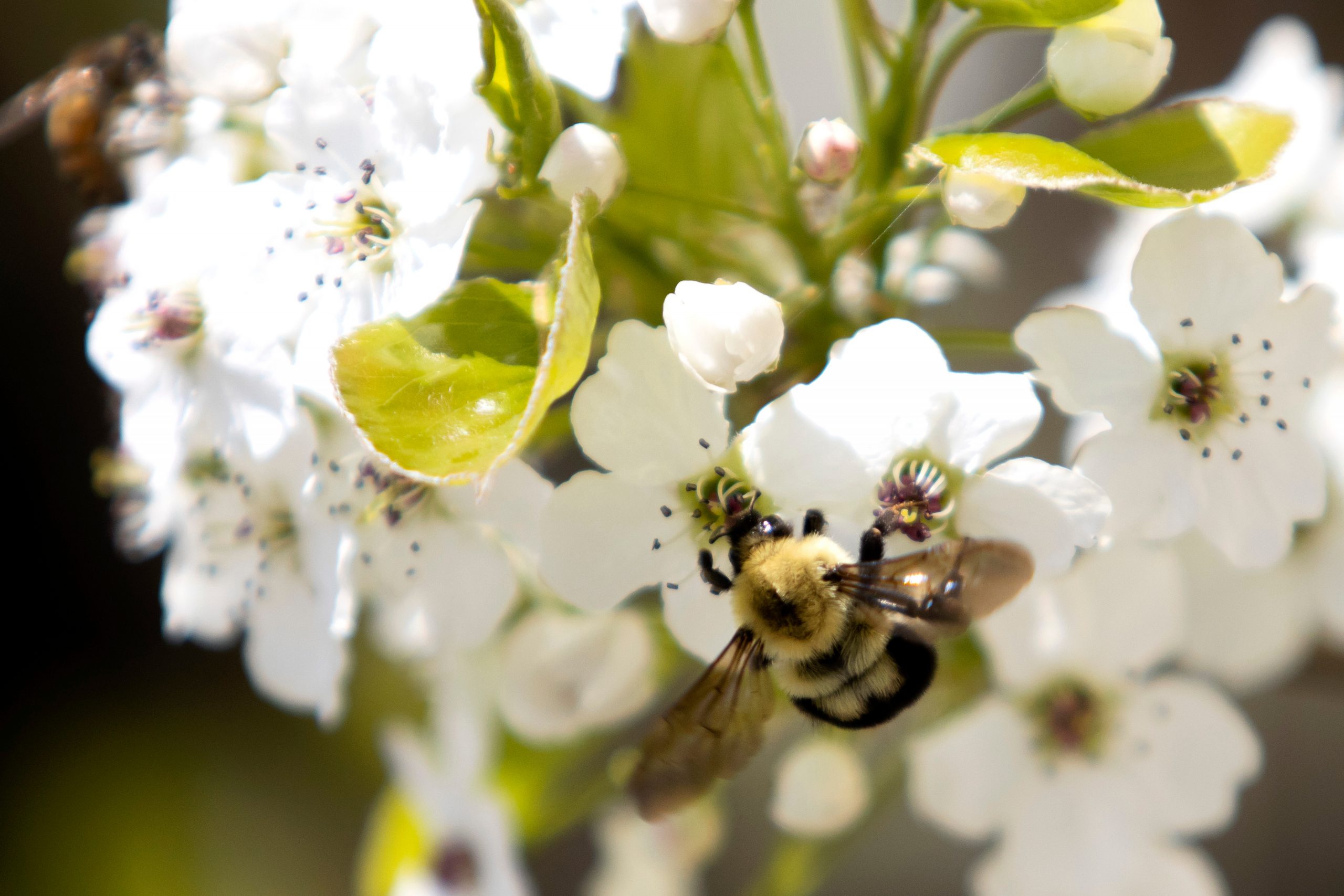The Lawrence University Community Council (LUCC) passed a resolution in support of Appleton’s No Mow May Resolution on Wednesday, April 26 in a 14-0 vote. No Mow May delays Appleton’s lawn height ordinance until the beginning of June. The LUCC resolution recognizes No Mow May as an institutionalized sustainability policy and encourages Lawrence to continue low-mow or no-mow practices to support pollinators.
The resolution was supported by research conducted by Associate Professor of Biology Israel Del Toro and Assistant Professor of Geosciences Relena Ribbons in 2020 and 2021. According to their research in 2020, households that participated in the resolution presented three times higher bee richness and five times higher bee abundances. These same results were produced in 2021 and 2022. According to junior and LUCC President Anders Hanhan, grass is the most cultivated crop in the U.S., spanning over 40 million acres. Bees and pollinators are a quintessential part of the ecosystem because they are responsible for crop pollination. Hanhan hopes that the resolution will show more active student support on these sustainability measures by having discussions about viable solutions for pollination conservation and alternatives to grass to protect natural resources like water.
“The decision was motivated by the students wanting to make a commitment and play their part in institutional sustainability and fighting climate change,” Hanhan stated. “Clean water is a very finite resource; conservation of water is one of our chief responsibilities in stewarding this planet. As a campus reflecting on what green space can be, we should reflect on some alternative to grass that could save the university money and, importantly, support our surrounding ecosystems.”
In March, District 15 Alderperson Chad Doran submitted a resolution to the Appleton Common Council to eliminate No Mow May, which was voted down on Wednesday, April 19. Ribbons, who spoke at various Common Council meetings in favor of the policy, stands by her research that she worked on with Del Toro. She has spoken about No Mow May at various Appleton municipal meetings. She hopes that the policy will empower residents of Appleton to become citizen scientists by experimenting in their lawns.

“I think No Mow May helps folks enter the world of re-evaluating the goals they have for lawns and what function lawns serve,” Ribbons stated. “No Mow May is but one of a suite of actions citizens can take to improve water quality, consider native lawn alternatives and provide pollinator food resources at a critical time of year: after emergence, but before many other pollinator plants are blooming.”
Despite LUCC’s decision, the lawns of Main Hall Green are still being mowed. Facilities and Construction Project Coordinator Katherine Lehman stated on behalf of Assistant Director of Facilities Operations–Grounds that while Lawrence University respects the work that LUCC does, Main Hall Green needs to be maintained for big events and in preparation for Commencement, which will be hosted on Sunday, June 11. Preparing the grounds on Main Hall Green is demanding and requires a lot of attention, according to Lehman. The Grounds Team has designated four green spaces across campus for No Mow May. These spaces include Lawe Street Hill, the area around Banta Bowl, the woods around Alexander Gymnasium and north of Alexander Gymnasium. According to Lehman, these spaces total an area larger than Main Hall Green.

